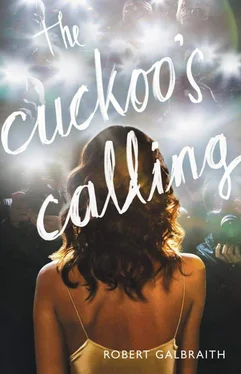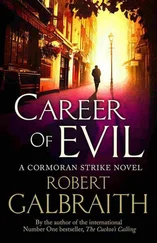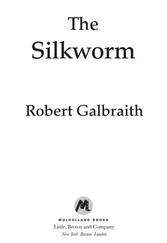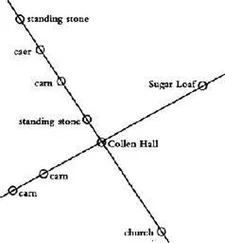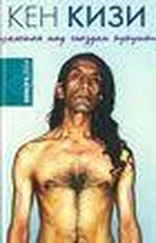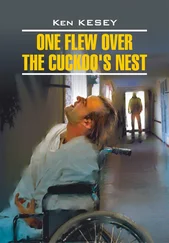“He claims to have been here when Lula was visiting,” said Strike.
Lady Bristow gave the smallest shrug of her fragile shoulders.
“Maybe he was here,” she said, “but I don’t remember it.” And then, her voice rising, “My brother’s being much nicer to me now he knows that I’m dying. He visits a lot now. Always putting down poison about John, of course. He’s always done that. But John has always been very good to me. He has done things for me while I’ve been ill…things no son should have to do. It would have been more appropriate for Lula…but she was a spoiled girl. I loved her, but she could be selfish. Very selfish.”
“So on that last day, the last time you saw Lula—” said Strike, returning doggedly to the main point, but Lady Bristow cut across him.
“After she left, I was very upset,” she said. “Very upset indeed. Talking about Charlie always does that to me. She could see how distressed I was, but she still left to meet her friend. I had to take pills, and I slept. No, I never saw Tony; I didn’t see anyone else. He might say he was here, but I don’t remember anything until John woke me up with a supper tray. John was cross. He told me off.”
“Why was that?”
“He thinks I take too many pills,” said Lady Bristow, like a little girl. “I know he wants the best for me, poor John, but he doesn’t realize…he couldn’t…I’ve had so much pain in my life. He sat with me for a long time that night. We talked about Charlie. We talked into the early hours of the morning. And while we were talking,” she said, dropping her voice to a whisper, “at the very time we were talking, Lula fell…she fell off the balcony.
“So it was John who had to break the news to me, the next morning. The police had arrived on the doorstep, at the crack of dawn. He came into the bedroom to tell me and…”
She swallowed, and shook her head, limp, barely alive.
“That’s why the cancer came back, I know it. People can only bear so much pain.”
Her voice was becoming more slurred. He wondered how much Valium she had already taken, as she closed her eyes drowsily.
“Yvette, would it be all right if I used your bathroom?” he asked.
She assented with a sleepy nod.
Strike got up, and moved quickly, and surprisingly quietly for a man of his bulk, into the walk-in wardrobe.
The space was lined with mahogany doors that reached to the ceiling. Strike opened one of the doors and glanced inside, at overstuffed railings of dresses and coats, with a shelf of bags and hats above, breathing in the musty smell of old shoes and fabric which, in spite of the evident costliness of the contents, evoked an old charity shop. Silently he opened and closed door after door, until, on the fourth attempt, he saw a cluster of clearly brand-new handbags, each of a different color, that had been squeezed on to the high shelf.
He took down the blue one, shop-new and shiny. Here was the GS logo, and the silk lining that was zipped into the bag. He ran his fingers around it, into every corner, then replaced it deftly on the shelf.
He selected the white bag next: the lining was patterned with a stylized African print. Again he ran his fingers all around the interior. Then he unzipped the lining.
It came out, just as Ciara had described, like a metal-edged scarf, exposing the rough interior of the white leather. Nothing was visible inside until he looked more closely, and then he saw the line of pale blue running down the side of the stiff rectangular cloth-covered board holding the base of the bag in shape. He lifted up the board and saw, beneath it, a folded piece of pale blue paper, scribbled all over in an untidy hand.
Strike replaced the bag swiftly on the shelf with the lining bundled inside, and took from an inside pocket of his jacket a clear plastic bag, into which he inserted the pale blue paper, shaken open but unread. He closed the mahogany door and continued to open others. Behind the penultimate door was a safe, operated by a digital keypad.
Strike took a second plastic bag from inside his jacket, slid it over his hand and began to press keys, but before he had completed his trial, he heard movement outside. Hastily thrusting the crumpled bag back into a pocket, he closed the wardrobe door as quietly as possible and walked back into the bedroom, to find the Macmillan nurse bending over Yvette Bristow. She looked around when she heard him.
“Wrong door,” said Strike. “I thought it was the bathroom.”
He went into the small en-suite, and here, with the door closed, before flushing the toilet and turning on the taps for the nurse’s benefit, he read the last will and testament of Lula Landry, scribbled on her mother’s writing paper and witnessed by Rochelle Onifade.
Yvette Bristow was still lying with her eyes closed when he returned to the bedroom.
“She’s asleep,” said the nurse, gently. “She does this a lot.”
“Yes,” said Strike, the blood pounding in his ears. “Please tell her I said goodbye, when she wakes up. I’m going to have to leave now.”
They walked together down the comfortable passageway.
“Lady Bristow seems very ill,” Strike commented.
“Oh yes, she is,” said the nurse. “She could die any time now. She’s very poorly.”
“I think I might have left my…” said Strike vaguely, wandering left into the yellow sitting room he had first visited, leaning over the sofa to block the nurse’s view and carefully replacing the telephone receiver he had taken off the hook.
“Yes, here it is,” he said, pretending to palm something small and put it in his pocket. “Well, thanks very much for the coffee.”
With his hand on the door, he turned to look at her.
“Her Valium addiction’s as bad as ever, then?” he said.
Unsuspicious, trusting, the nurse smiled a tolerant smile.
“Yes, it is, but it can’t hurt her now. Mind you,” she said, “I’d give those doctors a piece of my mind. She’s had three of them giving her prescriptions for years, from the labels on the boxes.”
“Very unprofessional,” said Strike. “Thanks again for the coffee. Goodbye.”
He jogged down the stairs, his mobile already out of his pocket, so exhilarated that he did not concentrate on where he was going, so that he took a corner on the stair and let out a bellow of pain as the prosthetic foot slipped on the edge; his knee twisted and he fell, hard and heavy, down six stairs, landing in a heap at the bottom with an excruciating, fiery pain in both the joint and the end of his stump, as though it was freshly severed, as though the scar tissue was still healing.
“Fuck. Fuck!”
“Are you all right?” shouted the Macmillan nurse, gazing down at him over the banisters, her face comically inverted.
“I’m fine—fine!” he shouted back. “Slipped! Don’t worry! Fuck, fuck, fuck,” he moaned under his breath, as he pulled himself back to his feet on the newel post, scared to put his full weight on the prosthesis.
He limped downstairs, leaning on the banisters as much as possible; half hopped across the lobby floor and hung on the heavy front door as he maneuvered himself out on to the front steps.
The sporting children were receding in a distant crocodile, pale and navy blue, winding their way back to their school and lunch. Strike stood leaning against warm brick, cursing himself fluently and wondering what damage he had done. The pain was excruciating, and the skin that had already been irritated felt as though it had been torn; it burned beneath the gel pad that was supposed to protect it, and the idea of walking all the way to the underground was miserably unappealing.
He sat down on the top step and phoned a taxi, after which he made a further series of calls, firstly to Robin, then to Wardle, then to the offices of Landry, May, Patterson.
Читать дальше
